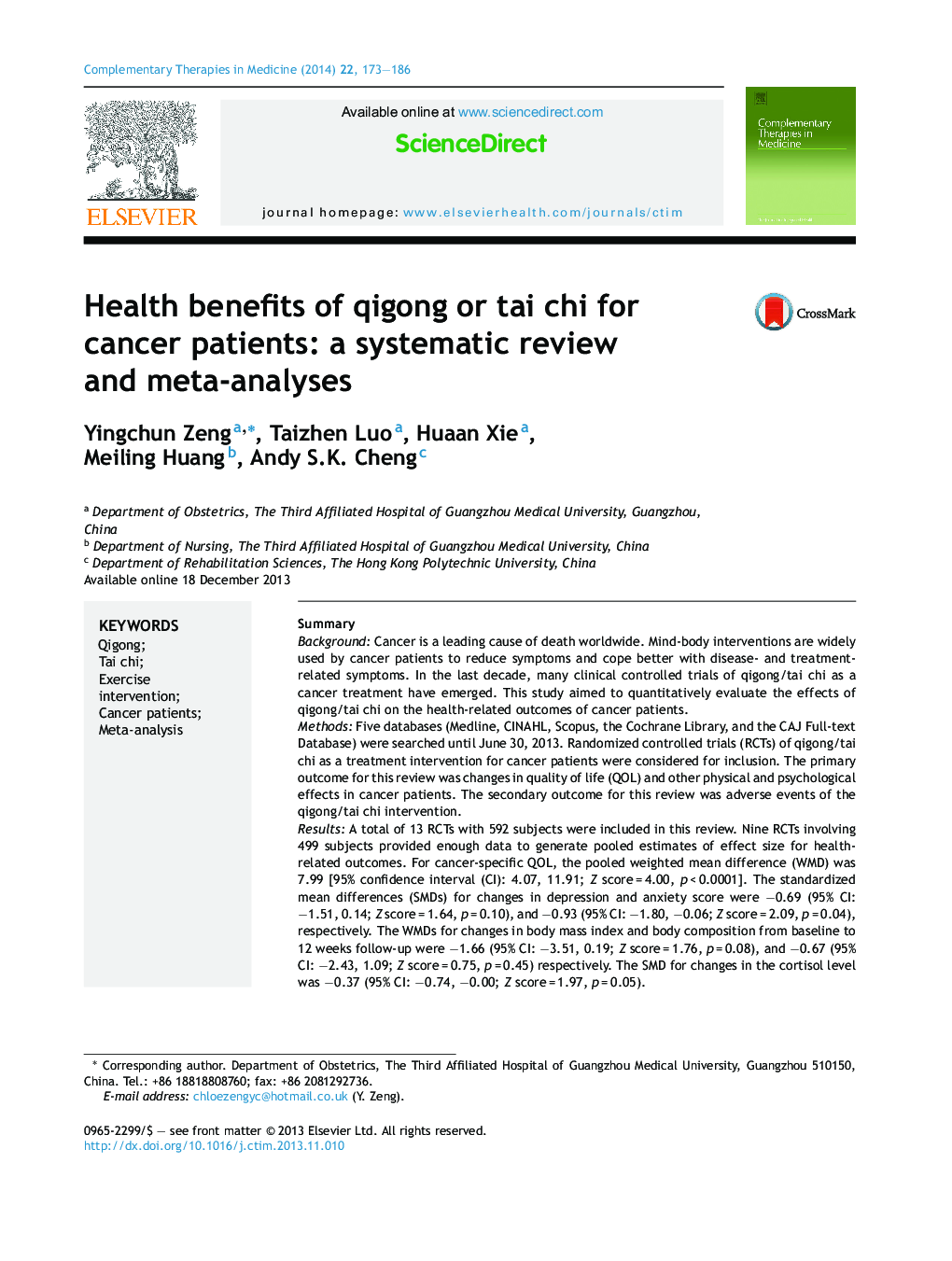| کد مقاله | کد نشریه | سال انتشار | مقاله انگلیسی | نسخه تمام متن |
|---|---|---|---|---|
| 5865409 | 1136497 | 2014 | 14 صفحه PDF | دانلود رایگان |
SummaryBackgroundCancer is a leading cause of death worldwide. Mind-body interventions are widely used by cancer patients to reduce symptoms and cope better with disease- and treatment-related symptoms. In the last decade, many clinical controlled trials of qigong/tai chi as a cancer treatment have emerged. This study aimed to quantitatively evaluate the effects of qigong/tai chi on the health-related outcomes of cancer patients.MethodsFive databases (Medline, CINAHL, Scopus, the Cochrane Library, and the CAJ Full-text Database) were searched until June 30, 2013. Randomized controlled trials (RCTs) of qigong/tai chi as a treatment intervention for cancer patients were considered for inclusion. The primary outcome for this review was changes in quality of life (QOL) and other physical and psychological effects in cancer patients. The secondary outcome for this review was adverse events of the qigong/tai chi intervention.ResultsA total of 13 RCTs with 592 subjects were included in this review. Nine RCTs involving 499 subjects provided enough data to generate pooled estimates of effect size for health-related outcomes. For cancer-specific QOL, the pooled weighted mean difference (WMD) was 7.99 [95% confidence interval (CI): 4.07, 11.91; Z score = 4.00, p < 0.0001]. The standardized mean differences (SMDs) for changes in depression and anxiety score were â0.69 (95% CI: â1.51, 0.14; Z score = 1.64, p = 0.10), and â0.93 (95% CI: â1.80, â0.06; Z score = 2.09, p = 0.04), respectively. The WMDs for changes in body mass index and body composition from baseline to 12 weeks follow-up were â1.66 (95% CI: â3.51, 0.19; Z score = 1.76, p = 0.08), and â0.67 (95% CI: â2.43, 1.09; Z score = 0.75, p = 0.45) respectively. The SMD for changes in the cortisol level was â0.37 (95% CI: â0.74, â0.00; Z score = 1.97, p = 0.05).ConclusionThis study found that qigong/tai chi had positive effects on the cancer-specific QOL, fatigue, immune function and cortisol level of cancer patients. However, these findings need to be interpreted cautiously due to the limited number of studies identified and high risk of bias in included trials. Further rigorous trials are needed to explore possible therapeutic effects of qigong/tai chi on cancer patients.
Journal: Complementary Therapies in Medicine - Volume 22, Issue 1, February 2014, Pages 173-186
